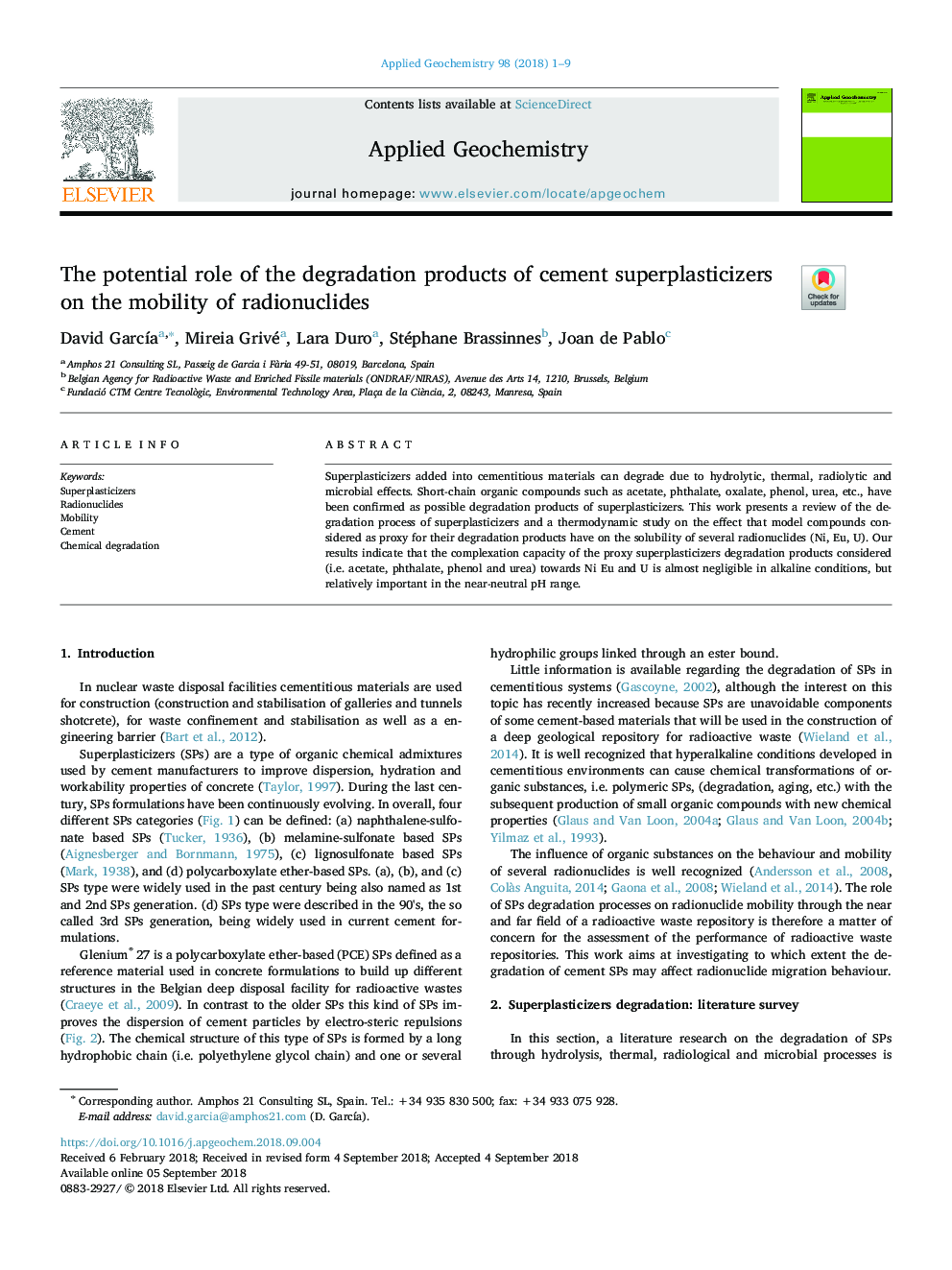| Article ID | Journal | Published Year | Pages | File Type |
|---|---|---|---|---|
| 10223578 | Applied Geochemistry | 2018 | 9 Pages |
Abstract
Superplasticizers added into cementitious materials can degrade due to hydrolytic, thermal, radiolytic and microbial effects. Short-chain organic compounds such as acetate, phthalate, oxalate, phenol, urea, etc., have been confirmed as possible degradation products of superplasticizers. This work presents a review of the degradation process of superplasticizers and a thermodynamic study on the effect that model compounds considered as proxy for their degradation products have on the solubility of several radionuclides (Ni, Eu, U). Our results indicate that the complexation capacity of the proxy superplasticizers degradation products considered (i.e. acetate, phthalate, phenol and urea) towards Ni Eu and U is almost negligible in alkaline conditions, but relatively important in the near-neutral pH range.
Related Topics
Physical Sciences and Engineering
Earth and Planetary Sciences
Geochemistry and Petrology
Authors
David GarcÃa, Mireia Grivé, Lara Duro, Stéphane Brassinnes, Joan de Pablo,
